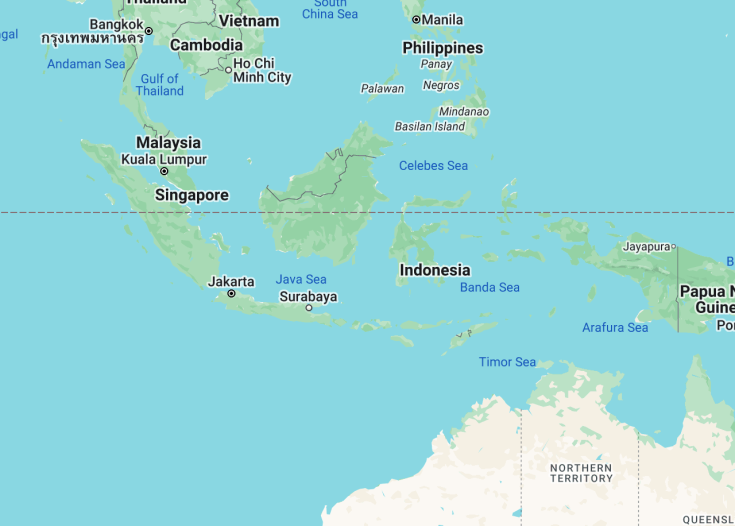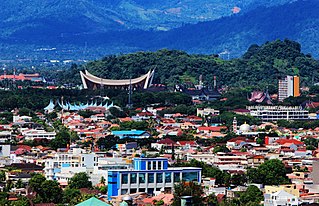With its stunning natural landscapes, rich cultural heritage, and warm hospitality, Indonesia is a captivating destination for travelers from around the world. From the pristine beaches of Bali to the breathtaking volcanoes of Java, this diverse archipelago offers something for every kind of adventurer. Explore vibrant markets, historic temples, and lush rice terraces, or indulge in world-class surfing and diving. Immerse yourself in local traditions, taste delicious cuisine, and marvel at the intricate craftsmanship of traditional arts and crafts. Embark on an unforgettable journey through Indonesia and discover the wonders of this captivating nation.
Don’t forget to pack light and breathable clothing, as Indonesia’s tropical climate can be hot and humid. Also, remember to carry a reusable water bottle to help reduce plastic waste.
Plan your visit during Indonesia’s dry season (April to October) for the best weather and fewer crowds. Also, be sure to explore the country beyond popular tourist spots to discover hidden gems and authentic local experiences.
How to best experience Indonesia?
Tickets, tours, and activities for Indonesia are available at these providers:
Click on the logos below to easily compare prices.

Feeling lucky? Try the direct search:
GetYourGuide.com Viator.com Trip.com Expedia.com Tiqets.com Ctrip.com (中文)
Top cities to visit in Indonesia
Discover the best cities of Indonesia and best places to visit.
Indonesia: The Tropical Paradise
| Capital | Jakarta |
| Time in Indonesia | GMT +7 |
| Language spoken | Bahasa Indonesia |
| Population | 273,523,615 (source: World Bank) |
| Religion | Islam (87.2%) Hinduism (6%) Christianity (5.7%) Buddhism (1.7%) Others (0.4%) |
| Currency | Indonesian Rupiah (IDR) |
| Airports | Soekarno-Hatta International Airport Ngurah Rai International Airport Juanda International Airport |
Indonesia is a breathtaking destination filled with stunning natural landscapes and vibrant cultures. With its diverse ethnic groups and over 17,000 islands, it is a vast archipelago that offers a unique and immersive travel experience for visitors.
The country’s rich history can be traced back to ancient times when it was an important trading hub for spices and other valuable commodities. Over the centuries, Indonesia has been influenced by various cultures including Indian, Chinese, Arabic, and European, resulting in a fascinating fusion of traditions and customs.
Indonesia is home to a wide array of natural wonders, ranging from pristine beaches and lush rainforests to towering volcanoes and vibrant coral reefs. The iconic island of Bali is renowned for its picturesque rice terraces, vibrant arts scene, and spiritual retreats. Komodo Island is a must-visit for nature enthusiasts as it is the only place in the world where you can find the Komodo dragon, the largest lizard species on Earth.
One of the main attractions in Indonesia is its vibrant and diverse underwater world. The country is part of the Coral Triangle, an area known for its high marine biodiversity. Snorkeling and diving enthusiasts can explore the colorful coral reefs and encounter an incredible array of marine life, including manta rays, turtles, and exotic fish species.
Where is Indonesia located?
Indonesia is located in Southeast Asia, between the Indian and Pacific Oceans. It shares maritime borders with Malaysia, the Philippines, Palau, and Australia.
What is Indonesia famous for?
Indonesia is famous for its stunning natural beauty, diverse cultures, and warm hospitality. It is also known for its unique traditional arts and crafts, such as batik textiles and intricate wood carvings. The country is a paradise for adventure seekers, offering activities such as hiking, surfing, and wildlife spotting.
History
The history of Indonesia can be traced back to ancient times, with evidence of human activity in the region dating back at least 1.5 million years. Over the centuries, Indonesia has been influenced by various cultures and civilizations, leading to a diverse and rich history.
Prehistoric Times – 7th Century
During prehistoric times, various indigenous cultures flourished in the Indonesian archipelago. The earliest known human settlement in the region was discovered in the Sangiran site in Central Java, where fossils of Homo erectus have been found. These fossils suggest that early humans inhabited the area as early as 1.5 million years ago.
In the 7th century, Indian traders introduced Hinduism and Buddhism to the region, leading to the rise of powerful kingdoms such as Srivijaya and Mataram. These kingdoms played a significant role in shaping the cultural and religious landscape of Indonesia.
8th – 15th Century
In the 8th century, the Srivijaya Kingdom reached its peak, controlling maritime trade routes and establishing strong ties with China and India. However, it eventually declined due to internal conflicts and external pressures.
During the 13th century, the powerful Majapahit Empire emerged, under the leadership of King Hayam Wuruk. The empire reached its golden age, expanding its territory and exerting influence over neighboring regions. The Majapahit Empire was known for its vibrant culture, art, and literature.
16th – 18th Century
In the 16th century, Indonesia became a strategic hub for European powers seeking to control the spice trade. The Portuguese were the first to establish a presence in the region, followed by the Dutch and the British. The Dutch East India Company eventually gained control over most of Indonesia and established a colonial administration.
During this period, the Dutch implemented a system of forced labor and exploited Indonesia’s resources for economic gain. Indonesian resistance to Dutch colonial rule grew over time, leading to various rebellions and movements for independence.
20th Century – Present
In the early 20th century, nationalist leaders such as Sukarno and Muhammad Hatta emerged, advocating for Indonesian independence. After years of struggle and resistance, Indonesia finally declared independence on August 17, 1945.
Following independence, Indonesia faced numerous challenges, including political instability, economic development, and social transformation. The country has experienced periods of political turmoil, including the authoritarian rule of President Suharto from 1967 to 1998.
Today, Indonesia is a thriving and diverse nation, with a rich cultural heritage and a rapidly growing economy. It is the world’s largest island country and home to a wide range of ethnic groups, languages, and religions.
Visit Indonesia
What to see and do in Indonesia?
When visiting Indonesia, there is no shortage of incredible sights and activities to experience. Here are some of the must-see attractions and activities in this diverse and vibrant country:
- Explore the stunning beaches and coral reefs of Bali
- Visit the ancient temples of Borobudur and Prambanan in Central Java
- Experience the vibrant culture and traditional dances in Ubud, Bali
- Trek through the lush rainforests of Sumatra and encounter orangutans in their natural habitat
- Discover the unique wildlife in Komodo National Park, including the famous Komodo dragons
- Take a sunrise hike to the summit of Mount Bromo for breathtaking views
These are just a few of the many incredible things to see and do in Indonesia. Whether you’re seeking adventure, relaxation, or cultural immersion, Indonesia offers something for every type of traveler.
Events in Indonesia
Indonesia is known for its vibrant and colorful festivals and events. Throughout the year, various celebrations take place across the country, showcasing its rich cultural heritage. Here are some notable events in Indonesia:
– Independence Day (August 17th): Celebrated nationwide, this event marks Indonesia’s declaration of independence in 1945. Festivities include parades, cultural performances, and flag-raising ceremonies.
– Nyepi (Silent Day) (Date varies according to the Balinese calendar): A unique Hindu celebration observed in Bali, Nyepi is a day of silence, fasting, and reflection. The island comes to a complete standstill, with no noise, lights, or activities allowed.
– Galungan (Date varies according to the Balinese calendar): A significant Balinese Hindu celebration, Galungan commemorates the victory of dharma (good) over adharma (evil). Festivities include elaborate decorations, traditional ceremonies, and feasts.
– Toraja Funeral Ceremonies (Throughout the year): The Toraja people in South Sulawesi have unique funeral traditions that involve elaborate ceremonies lasting several days. These ceremonies are a fascinating insight into the Toraja culture and beliefs.
These are just a few examples of the many cultural events and celebrations that take place throughout the year in Indonesia. Visitors can immerse themselves in the vibrant traditions and festivities of the country during their visit.
Best time to visit Indonesia
The best time to visit Indonesia is during the dry season, which typically runs from May to September. During this time, the weather is generally sunny and rainfall is minimal, making it ideal for outdoor activities and beach visits.
However, it’s important to note that Indonesia’s vast size and diverse geography result in varying weather patterns throughout the country. Some regions, such as Bali and Java, have a tropical climate with relatively consistent temperatures year-round. In contrast, other areas, like Sumatra and Kalimantan, experience more significant variations in weather.
The wet season in Indonesia generally occurs from November to March, with increased rainfall and humidity. While this period may not be ideal for outdoor activities, it can be a good time to explore lush rainforests and experience unique cultural celebrations.
Ultimately, the best time to visit Indonesia depends on personal preferences and the specific attractions or activities one wishes to pursue. It’s recommended to research the weather patterns of the desired destinations and plan accordingly.
Is Indonesia worth visiting?
Indonesia is definitely worth visiting for travelers seeking diverse landscapes, vibrant cultures, and unique experiences. The country offers a wide range of attractions, from pristine beaches and coral reefs to ancient temples and lush rainforests.
With its rich history and cultural heritage, Indonesia provides a unique insight into Southeast Asian traditions and customs. The warmth and hospitality of the Indonesian people further enhance the overall experience for visitors.
However, it’s important to be aware of the challenges that may arise during a visit to Indonesia. The country’s vast size and scattered islands can make travel logistics complex, and some areas may be more developed than others.
Additionally, like any destination, Indonesia is not without its issues. Visitors should be conscious of their impact on the environment and respect local customs and traditions.
Overall, while Indonesia offers abundant natural beauty and cultural wealth, each traveler should consider their own interests, preferences, and travel style before deciding if it’s the right destination for them.









